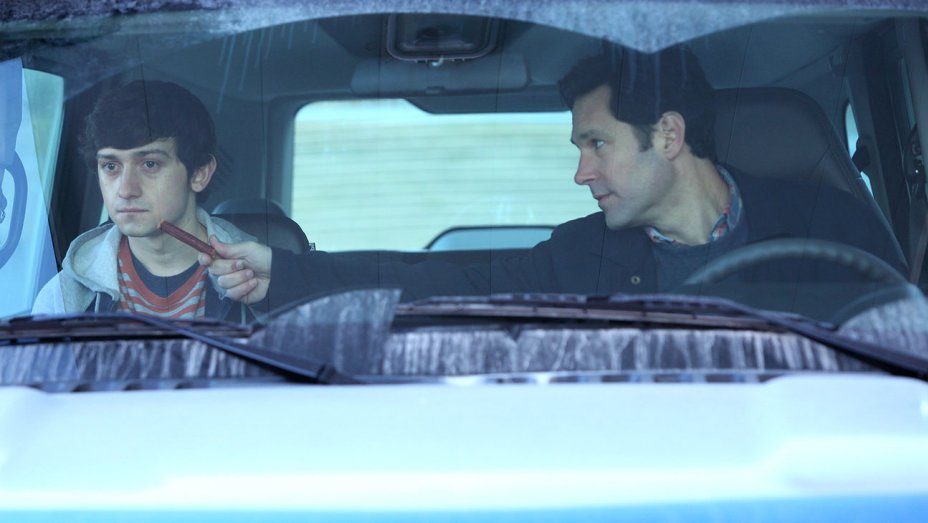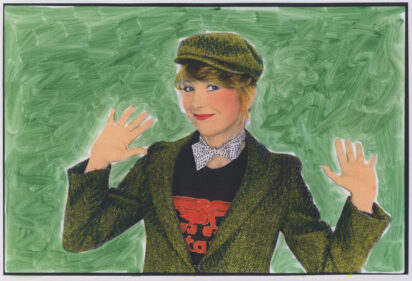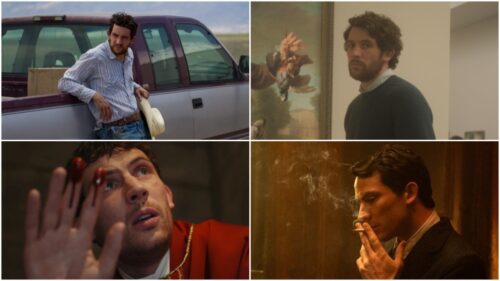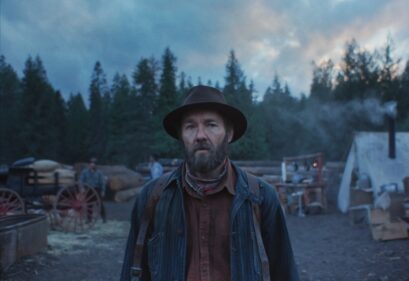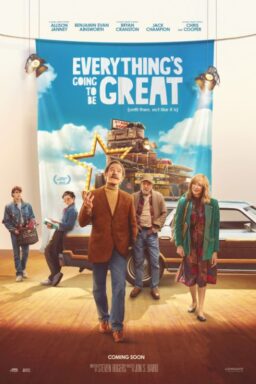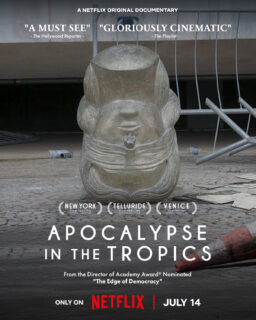Writer/director Rob Burnett achieves something very special with his new film, “The Fundamentals of Caring.” For one, its tale of a newly-trained, emotionally traumatized caregiver (Paul Rudd) taking care of a sarcastic introvert with Duchenne Muscular Dystrophy (Craig Roberts) answers to its characters’ struggles with a refreshing, dark sense of humor. Second, their no-holds-barred repartee makes the road movie concept fun again, as it features the two venturing out to see Americana, while encountering other wandering souls (one played by Selena Gomez) along the way. Burnett’s adaptation of Jonathan Evison‘s novel “The Revised Fundamentals of Caregiving” was a great surprise at Sundance 2016 and should continue to be when released via Netflix this Friday, especially as viewers meet a familiar story that stands out for its inviting perspective with gallows humor.
“The Fundamentals of Caring” is Burnett’s second film after 2012’s “We Made a Movie,” which came after years of being a head writer on “Late Show with David Letterman.” As for Rudd, one of the most charismatic actors in films ranging from David Wain or Judd Apatow comedies to “Ant-Man,” he was recently a punchline in a beer commercial featuring Amy Schumer and Seth Rogen, where they briefly diverged from marketing to say the truth: “Everybody loves Paul Rudd.”
RogerEbert.com spoke with Rudd and Burnett about their film, the unique tone it brings to a familiar story, an extended scene featuring Rudd improvising with a Slim Jim, and much more.
Did either of you have interest in the road movie before? Or were you weary of it?
ROB BURNETT: I definitely was weary of it, for a couple of reasons. I think the road movie is challenging because one, production wise it’s just hard. It was one of the directors I admire, Alexander Payne, who said, “I’m tired of working on road movies.” They’re just hard, in that way. And for a small movie it adds budget and it’s just challenging from a physical production standpoint. And the other side is that we have seen a lot of road movies. So the test for me was, how could we take something that had clearly been done before and make it funny and entertaining and worthwhile?
PAUL RUDD: There are lots of things that you can go down the list and say, “Oh, these are cliches, we’ve seen this before, just hits every checkpoint.” All of that takes a secondary status for me if I’m reading something and I just really like the characters. If I think it’s funny, or I think it’s moving, or I think what they’re talking about is interesting and what they’re dealing with is interesting, I don’t really think too hard about it. I don’t worry that it’s a road movie, per se. I don’t even think about what genre it might fit into. That stuff is of less importance to me.
Are there certain genres that you just don’t want to touch?
PR: I don’t really think in terms of genre, I think in terms of story and character. To me some of the funniest movies would be probably categorized in the dramatic genre, and likewise some of the most dramatic films, or films that have the most dramatic moments, are in comedies. Certainly as an actor, I want to try different things. “Ant-Man” was a genre, I guess, that I hadn’t really tackled before. I’m going to be doing a science fiction film down the road, and that’s not something that I’ve really done yet, but I don’t really think in those terms. It’s all about the character, really.
What truth did this story have for both of you guys, Rob when you were writing it, and Paul when you were performing and connecting with it?
RB: I think for me, when I bought the rights for this beautiful book by Jonathan Evison, there was another movie coming out at that moment, “The Intouchables,” which was a beautiful movie.
PR: You know who’s great in that? Andy Garcia. [Laughs]
RB: I rushed to the theater to see it, because that movie obviates with this one. But one of the things that attracted me to this particular story is that the typical version is that the irascible caregiver comes and breathes life back into the ill or the injured. And in this story, Paul’s character is every bit as injured or more so as Craig’s character. And neither of them have any particular interest in bringing each other back to life. They just happen to bond based on their senses of humor if nothing else. And almost in spite of themselves they manage to go from not living to living just a little bit. Because the other aspect of this that I enjoyed the challenge of was that these guys would never be healed. I knew going in that this movie was never going to be something where in the end, everyone’s fine. And yet the movie gets pretty big laughs from audiences. It’s an interesting mix of genres that I think was worth a try.
PR: The thing that I was drawn to was the gallows humor. That these two guys who were dealing with this trauma and pain could somehow find moments of contentment or humor in their situations and alleviate just a little sadness, even for a little bit, and help each other. I like that, I liked that idea.
That sense of humor feels unique for this type of film. How important is that sense of humor, to laugh with the darkness in our lives?
PR: For me, it’s just as important in life. Gallows humor and the humor of it all, if this movie was going to work, I knew that was the thing that was going to make it work, it was the most important thing to me. I feel the same way about life. Humor is the most important thing in life. It trumps everything else and it’s the only thing that helps me deal with everything else.
RB: I think Paul and I share a point of view on this. Life inherently … you’re born and you’re going to die, that’s kind of the premise of it.
PR: Wait—what?!
RB: The thing that I said to Paul in our very first meeting is that a lot of movies of this tone that I’ve seen, great movies, the comedy is delightful and amusing, but it’s not really funny. And I thought, what if, together, we could do something that kept to this tone? This movie isn’t “The Hangover” all of the sudden, it’s not that tone with giant set pieces and all that. But what if we could do a movie with character and human reality that actually made audiences laugh out loud? I thought that would be kind of good, and of course when you’re doing that, then all of the drama lands hard because your people are laughing. That’s the hope.

When it came to the rapport between you and Craig, were a lot of the jokes scripted or improvised?
PR: I never really know exactly how it goes. There’s some improvisation that we would do, we’d think of something and I think we filmed some long improvisations that are not in the [movie]. But it was scripted. The script was hilarious.
RB: That was Paul!
PR: I felt like it was all there. Sometimes you read a script and it’s like, “You’ll improv and this is just a blueprint of what the scene could be,” and that’s never a good sign. And it’s never encouraging as an actor to take that on, really. This was a film that I felt that from soup-to-nuts you don’t have to improvise anything, and the dialogue is strong and the subtext is so clear that we could just do the script as written. That being said, there were certainly moments when we would play around with it or start to improvise once we did a version of the script, and some of those scenes and some of those lines made the movie.
Paul, you have a scene once the journey gets started where you’re just riffing with a Slim Jim. It’s a very David Wain-esque moment.
RB: In the script, that was supposed to be just Paul eating a Slim Jim orgasmically in a way. Craig and Paul began doing that and my real fear was the crew was laughing too hard and we wouldn’t be able to put it in the movie.
PR: But my fear was that it was going to make the movie [laughs]. Some of those things you do to loosen, I’ll do it just to loosen myself up to just get myself out of my head as far as dialogue. When you’re playing around and improvising like that, sometimes it isn’t the actor’s hope that everything you do in the improv makes the movie, you can do it as an exercise to loosen it up an then find the one joke or the one lien that works within the scene or even the character. My fear sometimes is that if I go on a tangent and it doesn’t belong with the character or it doesn’t belong with the movie … that’s never the intention. That scene in particular was early in the shoot, and it was a fun one to do, because I think it established even a fun rapport between Craig and me, and I think that we locked in pretty quickly after that as far as having a simpatico sensibility towards the material and how we would approach it. I think it was always there, we didn’t have any deep conversations like “What do you think the tone is?” I felt like we knew what it was and how we wanted to kind of sell it so that it made sense.
There are scenes where this film has its gravity and its sadness. What was most important for you guys to get right about that traumatic elements of Paul’s character, so that the rest could build upon it?
RB: This was really difficult, and one of the hard parts in the adaptation. You kind of feel like you’re walking around someone’s perfectly furnished home and why should you be touching anything? And at some point, you give over and say, “I’ve got to make this my home in some way,” and in keeping the spirit of what exists, the book is written from Ben’s first person. So the author has the luxury and the challenge of being able to write long internal monologues with Ben and dissecting the situation and so forth. A long period of the two of them bonding and the two of them on the road, I had to make hard choices and a kind of strategy to point towards something being deeply wrong with this character, and that they bond relatively quickly as well in a montage, but you could write an entire movie about the first act. These are kind of the choices that you make and kind of go with when you’re taking one art form and putting it into a different art form.
That’s another area where, I’d written a bunch of stuff, but if you don’t have the chemistry between Craig and Paul, you just have nothing. And if you watch the two of them in that, I knew early on when we were shooting this, we just rolled on a lot of that. I knew that it would be visual, all of the stuff in the bathroom montage in the beginning. Boy, it was hard. There was a lot of great, funny stuff that came out. But what I think is really interesting in that montage is a very interesting arc in Ben there that Paul pulls off very effortlessly with really no dialogue. In addition to plotting those characters, we have to move him from being very tentative around Trevor; in the beginning he is jumping through all of the hoops, and in the end he is right with him and ignoring him at times when Craig is trying to do all that stuff. In a beautiful bit of shorthand, Paul does a thing where he’s cleaning Craig in the bathroom, and it’s the most subtle thing where he spins the toilet paper. When you’re looking for efficiency, the idea of, in this minute 40 seconds of stuff, the guy has gone from, “I don’t know how put this guy on the toilet” to “I’m spinning toilet paper effortlessly,” is very efficient.
PR: I don’t know what you’re talking about!
Paul, do you see yourself evolving into a more dramatic presence or getting more comfortable with stuff? This movie has moments we haven’t seen before from you.
PR: I never thought of myself as a comedic actor. I didn’t go to Second City, that’s not my background, I’m not a comic, I studied theater and my career when I started was a lot of dramatic stuff. I think I might be trying to do some things that I haven’t done in a while in different ways, but I think maybe my own … I don’t know if ignorance is the right word, but I don’t think I’ve viewed myself in the same way that everyone else has based on some of the movies I’ve done. The last few movies that I’ve done just happen to be comedies, but I don’t differentiate too much as I think maybe some other people. I would like to do some other things that would not be considered comedies.
I am curious about this science fiction thing.
PR: Yes, I’m just as curious as you.

